New Universal Kids Park Coming to Frisco, Texas
Universal Kids Resort is a new family-friendly theme park in Texas designed for parents with young children. This post shares details about the rides & characters, updated concept art, details now that the park has an official name, and our commentary about this smaller scale concept and whether Disney might follow suit. (Updated December 1, 2023.)
According to Universal, the new kid park concept is set in a lush green landscape and features themed lands that celebrate Universal’s brand of entertainment, humor, and innovation. The park will bring to life its beloved characters and stories in ways that will wow even the youngest theme park goers.
Universal’s proposed park will be designed to be more intimate and engaging for younger audiences and will be sized for a regional audience. It will be full of family-friendly attractions, interactive and playful shows, character meet and greets, unique merchandise and fun food and beverage venues.
Although smaller in size, it will still carry the same quality as Universal’s other larger resort destinations, according to the company. The concept will be approximately 97 acres in size, as compared to approximately 110 acres for Islands of Adventure and Universal Studios Florida.
However, that’s not exactly an apples to apples comparison, as part of the 97 acres of land purchased by the company, the proposed park also has plans for an adjacent themed hotel and room for expansion. The entire area is intended to have a completely different look, feel, and scale than Universal’s existing parks and will appeal to a new audience for the brand.
Although rumored at this point, the new family-friendly theme park is expected to contain lands based on some of the following movies and characters:
- Trolls by DreamWorks Animation
- Jurassic World: Camp Cretaceous
- Minions
- Puss in Boots
- Spongebob Squarepants
This list should be fairly unsurprising, as this is basically a list of the most popular family-friendly intellectual property to which Universal has access. Even if we were just guessing, we’d expect at least 4 of those IPs to be in the finished park.
December 1, 2023 Update: Universal Destinations & Experiences officially announced today that this park will be named Universal Kids Resort. This imaginative, original resort brings Universal’s style of storytelling to a new, younger audience. (It’ll be interesting to see whether that’s the name of the entire complex or the park–it would make sense for the former to be the case, and the latter to be called Universal Kids Park.)
Universal Kids Resort will include a theme park featuring immersive lands that celebrate Universal’s entertainment, humor and fun. The family-friendly theme park will feature all ages attractions, interactive and playful shows, unique merchandise, fun food and beverage venues, and character meet and greets. Universal Kids Resort will also offer a 300-room themed hotel giving families a place to stay and to play following their day of adventure.
“Universal Kids Resort will inspire the unbridled creativity of kids through imagination, discovery and most importantly – play,” said Molly Murphy, President, Universal Creative. “We’re designing the resort so kids and families can feel the thrill of being physically immersed in their most beloved stories and characters.”
Set in lush green landscape with a distinctive look, feel and scale specifically for younger children, Universal Kids Resort will deliver the quality the Universal brand is known for worldwide. Along with the announcement of the Universal Kids Resort name, the company also released new concept art (above) that replaces the old art (below). We’re keeping both in this post to illustrate just how much the project has already evolved from announcement to the beginning of construction.
Speaking of which, work on Universal Kids Park is well underway as of December 2023 following a groundbreaking last month. Universal Kids Resort will drive immediate economic impact for the region, creating thousands of jobs including more than 2,500 new construction jobs. Throughout the project, the company will remain focused on ensuring the resort adds value and positively serves the community.
Universal Parks & Resorts selected the city of Frisco, in North Texas, as the area for this new concept given the city’s growing population and ability to attract businesses to the area. The proposed location for the new concept is ideally situated east of the Dallas North Tollway and north of Panther Creek Parkway.
“We are excited about the opportunity to partner with the city of Frisco and Mayor Cheney as we work to bring this innovative, new concept to life designed specifically for a younger generation of Universal fans,” said Page Thompson, President, New Ventures, Universal Parks & Resorts. “We think North Texas is the perfect place to launch this unique park for families given its growing popularity within this part of the country.”
“Frisco is one of the fastest growing cities in the U.S. and has been recognized as a great place to plant professional roots and raise a family,” said Frisco Mayor Jeff Cheney. “This new Universal concept will continue to enhance our tax base, expand employment opportunities and bring even more fun to Frisco benefiting our residents, businesses, and visitors.” According to Universal Parks & Resorts, more details about the Frisco Family Park Project will be revealed over time.
Earlier this year, the City of Frisco’s Planning and Zoning Commission recommended a special use permit for Universal’s Frisco Family Park Project, which was then approved by City Council in a 4-2 vote last night. Also approved was $12.7 million in economic incentives for the project, subject to a range of different triggers. One of the requirements of the economic incentives is for the park to be open by June 2026.
This paved the way for construction to begin, despite pushback from angry residents, most of whom voiced concerns about traffic, crime, decreased property values, and aesthetics. Many appeared in person to plead with the Frisco City Council to delay the vote so their concerns about traffic, crime, and quality of life issues could be properly studied and addressed.
Residents also voiced opinions online by filling out a project input form. The results there were overwhelmingly opposed to Universal’s planned park: 75 people were against the project, 3 were in favor, 6 requested additional information, and 1 asked council to consider a park aimed at a different demo, because one aimed only at young children would be unlikely to survive in the long run.
The residents opposed to the say the final agreement leaves too many loopholes on hours of operation. They also don’t like that city leaders will be getting discounted or free access to the park, which residents believe creates a conflict of interest. Residents also voiced frustration that Universal’s Frisco Family Park will be around for the long-term, but is being rushed through the approval process. (See the planning development documents and studies Frisco has posted about traffic, crime, etc.)
During a final presentation, the city council heard economic impact arguments. Universal contents that the park will generate $3 million per year in sales and property taxes along with more than $1 million annually in hotel taxes while employing around 650 people. A required traffic study revealed Universal’s Frisco Family Park will draw about 7,500 weekday visitors on average. On peak days, including certain weekends and holidays, the theme park will have up to 20,000 visitors.
The developer will provide canopy trees, shrubbery, and berming that will screen perimeter fencing and enhance the area with lush green landscape. However, critics contend that 12′ trees are not going to properly conceal 80′ structures located in Universal’s Frisco Family Park. To address residents’ safety concerns, the Frisco Police Department will partner with Universal prior to opening to help determine how many officers will be needed and what services will be provided by police and security officers.
Now that the project has been approved by City Council, angered residents who believe it was simply rubber-stamped have promised to continue their fight. The next step is getting enough signatures for a referendum on Universal’s Frisco Family Park. That’s an uphill battle, and one that seems destined to fail.
Never say never, though. Look no further than Disney’s America for a ‘case study’ in locals getting theme parks cancelled. That’s one of several “Disney Decade” projects that were met with fierce opposition in the 1990s and now exist primarily in the pages of coffee table books about unbuilt Imagineering plans.
Our Commentary
In the original press release, Universal introduced this new concept by calling it a “one-of-a-kind theme park, unlike any other in the world, specifically designed to inspire fun.” We deleted that line because there’s nothing in the concept art or official details to suggest it’s true. (This is no knock at Universal–a lot of inaccurate or misleading marketing puffery gets deleted from Disney releases, too.)
It’s tough to say what this will end up being once it goes from concept to reality. Right now, it sounds a lot to us like LEGOLAND, but swapping out those iconic bricks for different intellectual properties. Those are solid parks for what they are, offering tremendous appeal and value for families on a smaller scale.
In our view, this is a brilliant move by Universal. There’s a ton of unsatisfied demand for regional theme parks from families who either don’t want–or can’t afford–to take weeklong vacations to the flagship resorts. Destination theme park complexes are not for everyone, and there are multiple barriers to entry for Universal Orlando and Walt Disney World.
Cost is obviously one, stamina is another, and so is a desire to dedicate vacation time to theme parks. There are probably several other reasons many families don’t consider trips to Central Florida’s complexes. I’m hardly the one to lay out the argument against visiting Orlando, as I cannot relate!
Regional parks are easier as a long weekend getaway with lower stakes. They may not offer the same degree of all-ages appeal and excitement, but they’re also cheaper and easier. Lower reward, but lower risk. In short, they fill an important niche.
With this announcement by Universal, the big question for many theme park fans is whether Walt Disney World will “answer.” This is totally understandable, especially when you consider the fact that Dallas or Houston are more or less right between Orlando and Anaheim.
In fact, whenever the topic of a new theme park comes up, Texans inevitably point out that they’re state would be the perfect location. (Just look at the comments to Disney Parks in New Countries “Inevitable” or Will Walt Disney World Build a Fifth Gate?). While we agree with the sentiment that Texas would be a great location, we disagree with the conclusion that Disney will–or should–build more theme parks at new sites in the United States.
For one thing, Disney has dabbled with regional entertainment concepts in the past and it has not gone well. Granted, it’s been a while and they’ve never tried anything like what Universal is planning to build in Texas. Nevertheless, it’s difficult to see the Walt Disney Company going down this path for a couple of reasons. One is their past failures on this front and abandoned concepts along the way.
Another is that they largely seeming to be aiming upstream, establishing Disney as a premium product. I do not think that positioning is consistent with this approach, at least, not at present. Yet another reason is that the timing simply is not right.
Disney still has a ton of debt due to the 20th Century Fox acquisition, and continues to hemorrhage billions of dollars each quarter on streaming as it attempts to grow Disney+ and other services. Comcast is in a great position to expand its theme park footprint right now, but the same is not true for Disney. If anything, they need to shed some assets and better manage what they have.
Even setting all of that aside, I’m not sure whether building regional parks would be a savvy business move for Disney or not. Until sitting down to write this article, it was never something I even considered.
The upside would be that it would be another addition to Disney’s flywheel, and a way to capture audiences that are not currently served by Walt Disney World or Disneyland. That’s good for brand awareness and affinity, and would reinforce synergies with Disney+ and the company’s many merchandising initiatives.
The potential downside is that it could cannibalize business at Walt Disney World and Disneyland. Right now, families with small children in Texas and neighboring states likely take expensive week-long rite-of-passage trips to Florida, spending thousands of dollars in the process.
If many of those could “check the box” (so to speak) by visiting a significantly cheaper kiddie park for a weekend, they probably would opt for that instead. (One of the things it’s important to do when analyzing decisions like this is putting yourself in the shoes of the average American–not a diehard Disney fan.)
Ultimately, it’ll be interesting to see how this works out for Universal Parks & Resorts. The calculus for Comcast is almost certainly different than it would be for Disney, in large part because Universal Orlando typically courts a different demographic. Its guests skew older, and are usually not rite-of-passage families as is the case with Disney.
That’s not the only way the two park operators differ; the companies also have access to very different libraries of intellectual property (my guess is this will end up being all things DreamWorks). If Disney opened regional parks, it might cannibalize business from Walt Disney World and Disneyland–but that’s highly unlikely to happen for Universal. (If anything, this Texas park is more likely to hurt Disney’s existing parks than Universal’s, but even that seems fairly far-fetched.)
I truly hope this is a huge success for Universal Parks & Resorts. In fact, I hope everything Universal is currently doing–along with every other amusement and theme park operator–is a huge success. Cheering for the failure of Disney’s competitors is not the best way to “prove” to the company that you’re a loyal, diehard fan.
Rather, it’s a real doofus move that demonstrates you enjoy paying more, enduring larger crowds, and settling for less. The ultimate beneficiary of competition is consumers; we all win when theme parks raise the stakes and try to outdo one another to court customers. Here’s hoping this initiative is a huge success for Universal, and these regional parks pop up all over the United States!
Need trip planning tips and comprehensive advice for your visit to Central Florida? Make sure to read our Universal Orlando Planning Guide for everything about Islands of Adventure and Universal Studios Florida. Also check out our Walt Disney World Vacation Planning Guide for everything about those parks, resorts, restaurants, and so much more. For regular updates, news & rumors, a heads up when discounts are released, and much more, sign up for our FREE email newsletter!
YOUR THOUGHTS
What do you think of Universal’s plan to build a regional park aimed at families with small children in Texas? Think this will be a success–similar to LEGOLAND? Would you like to see Disney build similar parks in Texas or other areas outside the California and Florida markets? Do you agree or disagree with our commentary? Will you be attempting to visit Universal Orlando or Hollywood anytime soon? Any questions we can help you answer? Hearing your feedback–even when you disagree with us–is both interesting to us and helpful to other readers, so please share your thoughts below in the comments!
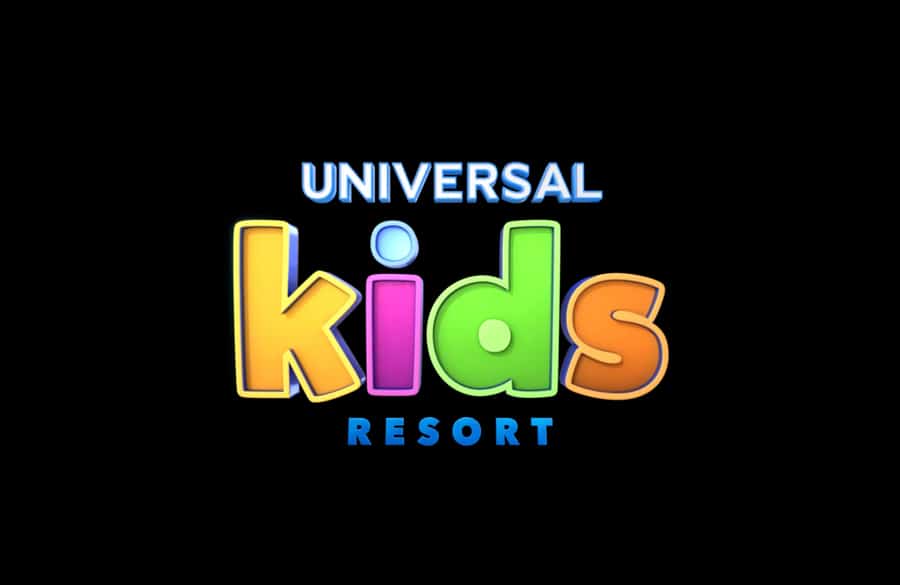
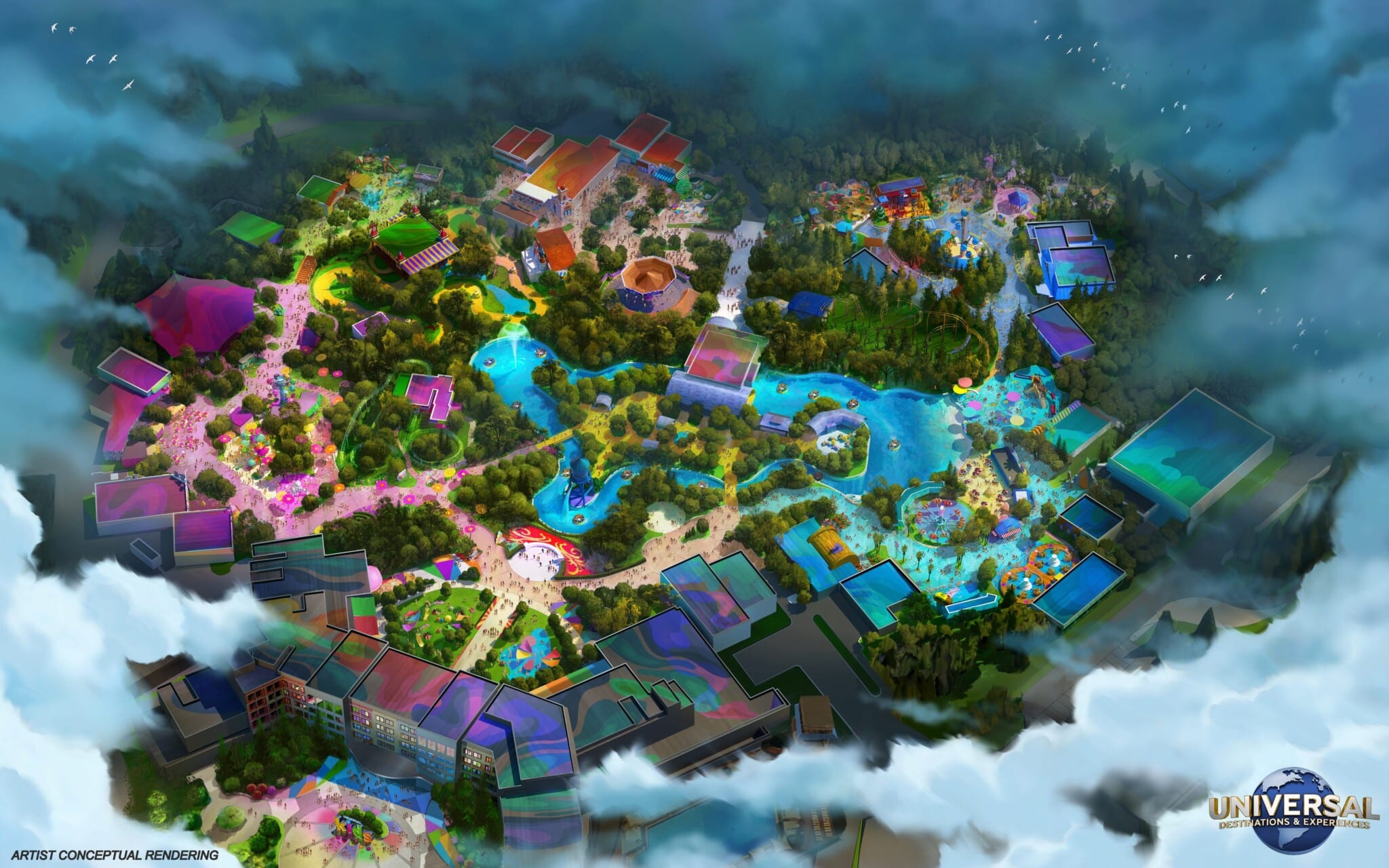
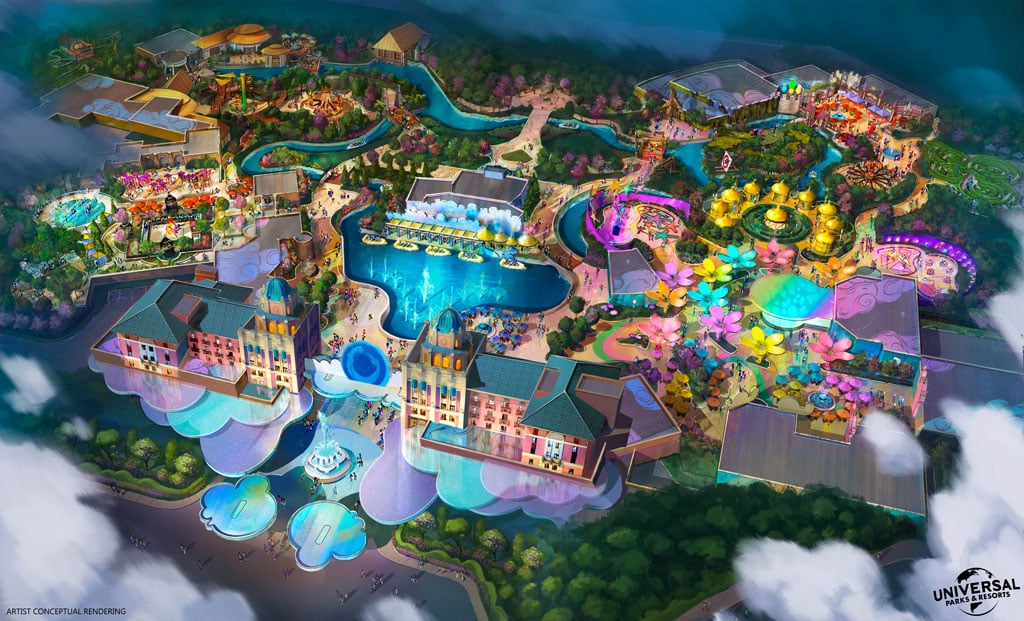
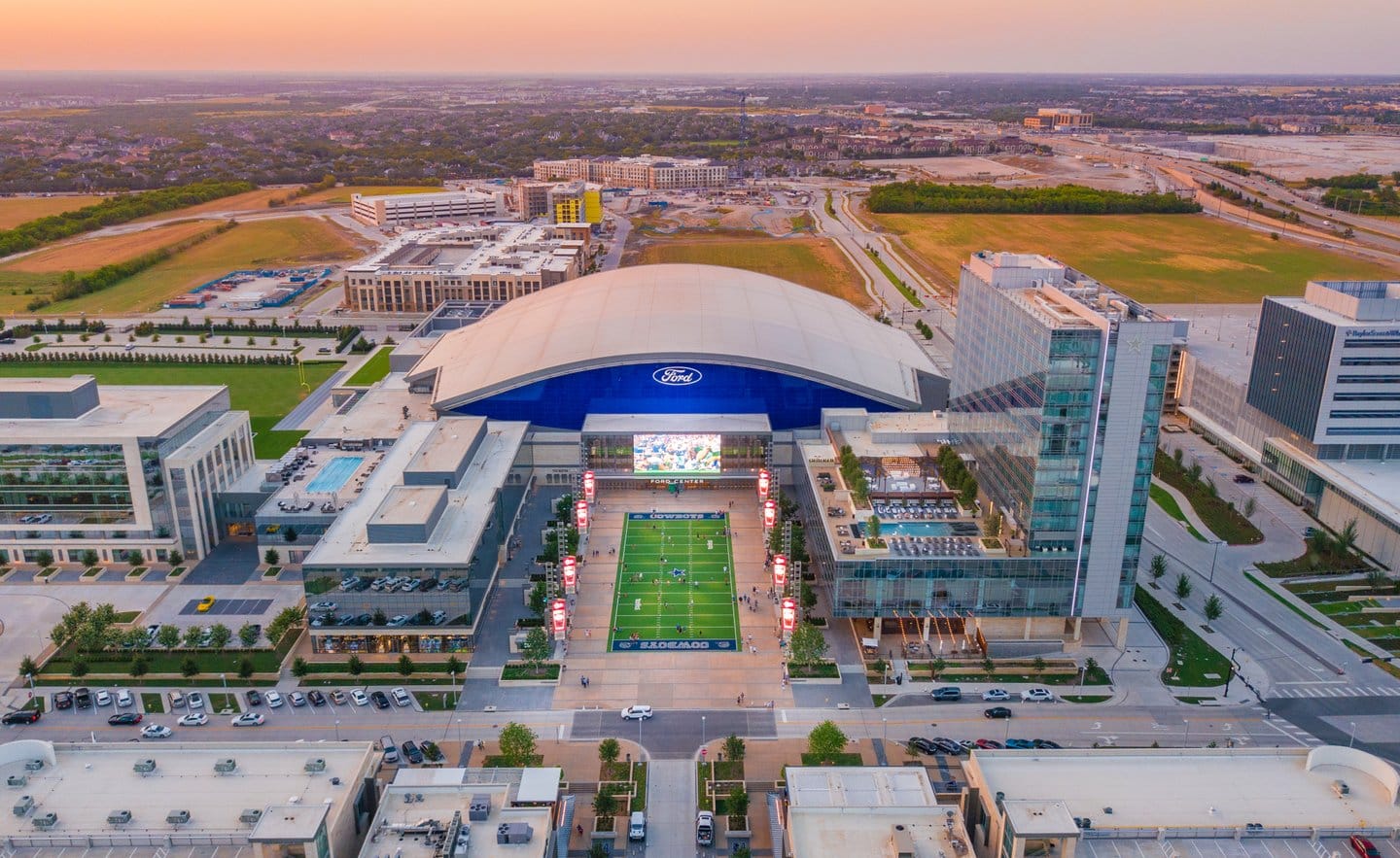
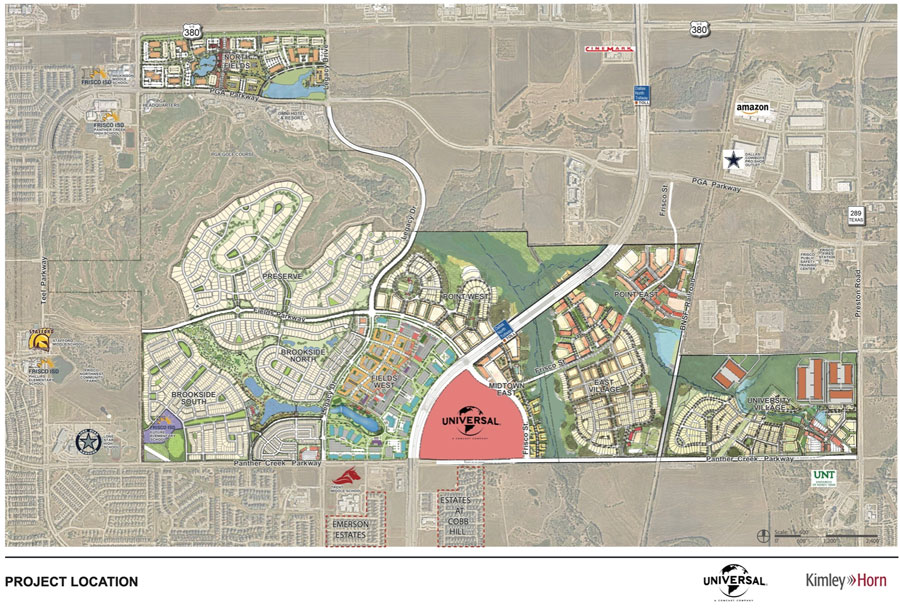
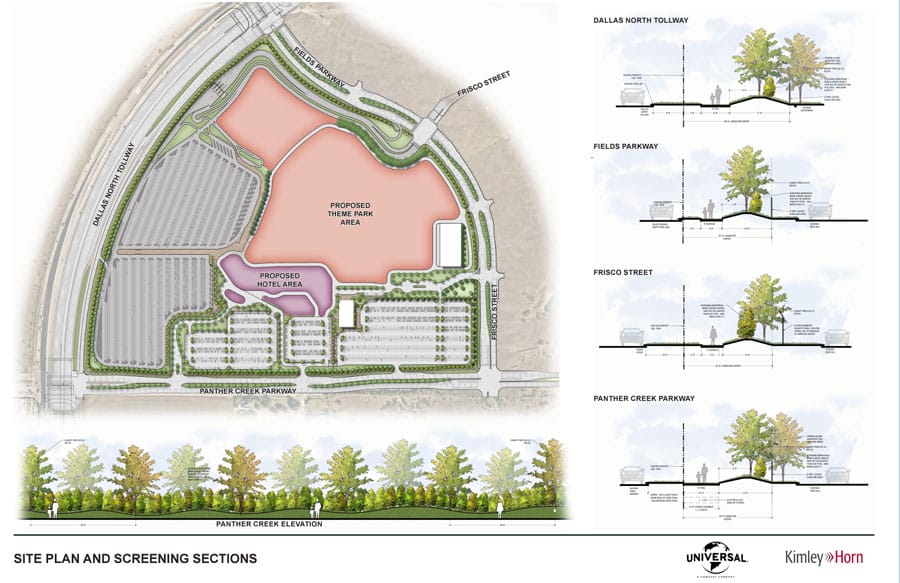
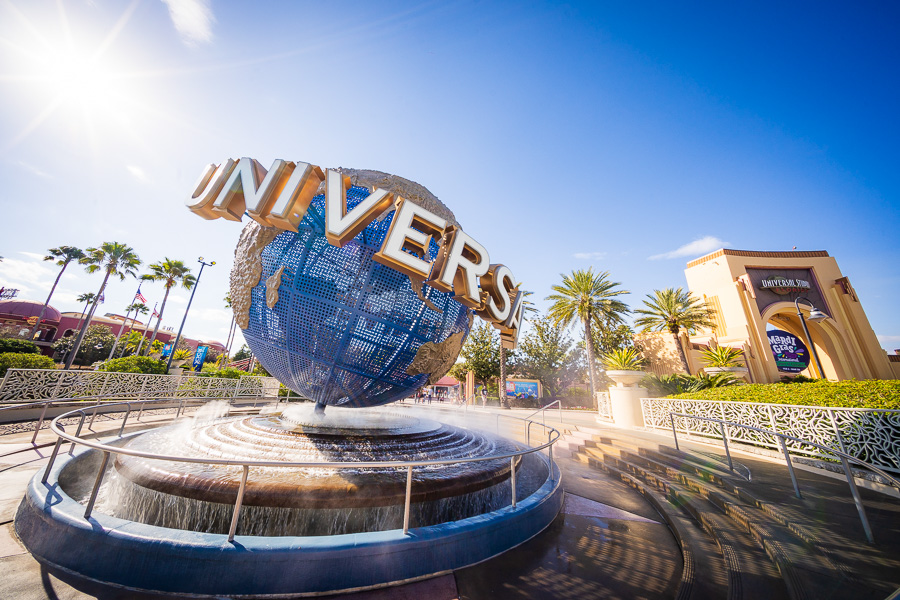
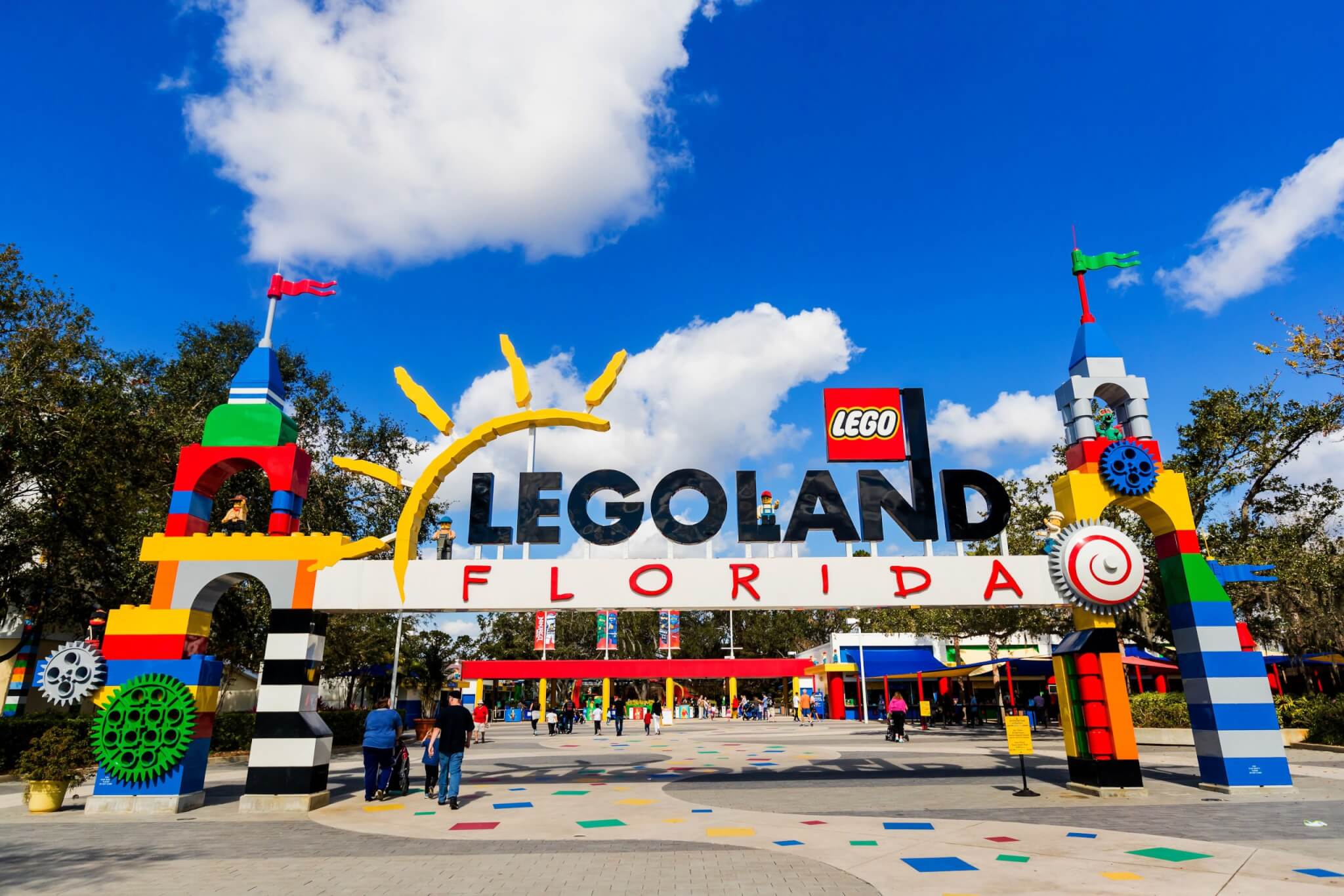
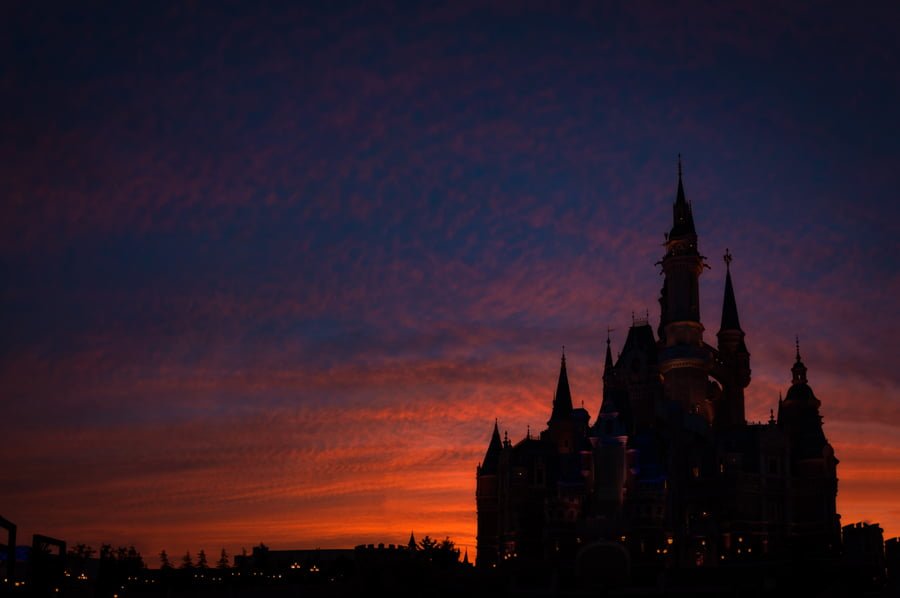
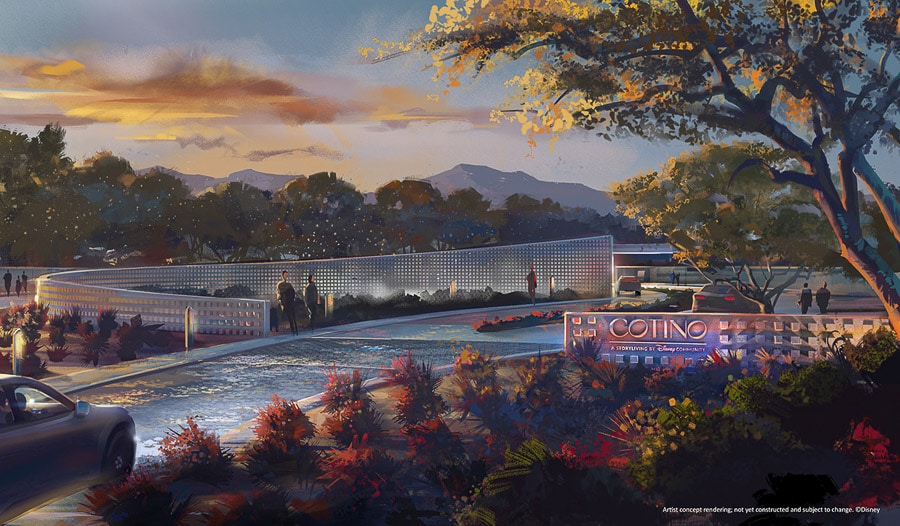


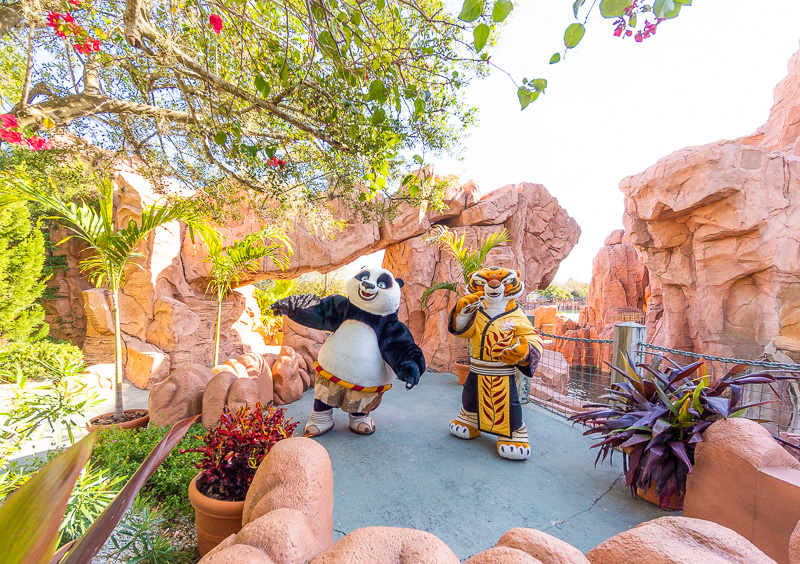
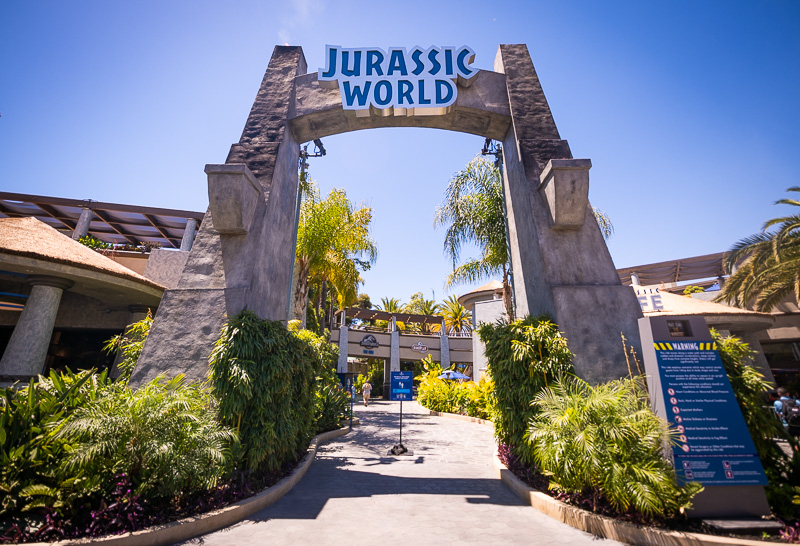
I’m pretty sure these LGBTQ+ comments are being stated out of conjecture (which does make it just an opinion) rather than actual knowledge of life experience in Texas, particularly in the DFW area. Perhaps you should actually visit and see for yourself. Maybe Universal Kids Resort will be that perfect opportunity.
I dunno, I feel like this will be more for locals or at least somewhat locals. I don’t think a lot of people would fly to Texas of all places with the heat for a few kiddie rides. Im sure it will do fine but doubt it will be a nationwide attraction like the Orlando parks.
I’m pleased the “developer will provide canopy trees, shrubbery, and berming that will screen perimeter fencing and enhance the area with lush green landscape” because right now that area is drought stricken farm land. I’m glad this thing is going in, but for the folks from out of state that will visit, be sure to come during out 2 weeks of Spring or our 2 weeks of Fall.
Tom — I was part of the Disney regional parks project in 2009, it was fascinating. Loon NH, Dallas, CA…..
Essentially what Great Wolf (awful) turned into, which would have been amazing if Disney.
Happy to discuss
“1 asked council to consider a park aimed at a different demo, because one aimed only at young children would be unlikely to survive in the long run.”
Here’s to you, local amusement park fan for making a very specific comment that is actually of importance to the local government!
Obviously it *can* work. Besides the Legoland franchise, Sesame Place has operated in Pennsylvania for over 40 years. It is not *guaranteed* to work, of course. Indeed, the original second Sesame Place in the DFW area failed. On the other hand, many regional and local parks not focused on young children failed. I found this article fascinating:
https://www.dallasnews.com/news/curious-texas/2020/08/19/whats-the-history-of-d-fws-theme-parks-curious-texas-goes-for-a-ride/
My take is that this park can succeed because the Dallas-Fort Worth area is much larger than it used to be, with the populations of Fort Worth and Texas in particular having grown significantly. (That being said, regional parks survival seems to be based on management and current population size rather than future growth, as several amusement parks in Pennsylvania continue to thrive in their local areas.)
Which is interesting to me, in light of the miserable frigid weather half of the year. Bottom line is that if there’s a good population base and you build a nice park, run it well, and keep it clean, people will come…
Wow…the shortsightedness of those who would write off an entire state based on what I assume is a difference of opinion to whatever the majority party is in that state. There are people who agree and disagree with you everywhere – even in your own neighborhood. To boycott an entire state like that…you’re really limiting your life experience.
This often comes up when it comes to California, and I remind the state’s “detractors” that it’s home to more conservative voters than any other state. Likewise, Texas is home to more liberal voters than New York.
Refusing to visit entire geographic locations due to differences of opinion is only doing you a disservice; writing them off entirely does the same for people who live there with whom you agree. It’s myopic, petty, and ultimately counterproductive.
Trans people and women’s lives are being compromised by laws in Texas, it’s not just an “opinion” that they’re being affected
How does not visiting a state effect change on those issues?
It’s the same idea when people see a negative headline about Florida and reply with the gif of Bugs Bunny sawing the state off and letting it drift out into the ocean. Okay? People still live there and are subject to the laws and policies. All you’ve done is signaled disagreement–that alone accomplishes nothing. Even at a larger scale–moving the MLB All-Star Game or film production, for example–the economic consequences are shouldered by the local community and businesses, not the politicians.
Get out of the weeds peeps.
I don’t disagree, just have issue with calling the reason a person would not want to visit a state to begin with is just a “difference in opinion”. Seems kind of reductive. It’s not really an opinion that bad things are happening in states like Texas, and that people are being affected. Does boycotting them solve anything? No, but don’t boil down the reason someone would do that to “an opinion”
@Mark it’s a sad state of affairs that now people do not want to even discuss things any more, much less listen to a different point of view. California is a beautiful state but I will never live there again for many reasons. I still like to visit and know people there, some like and some despise their governor. We should’ve made a much, much larger portion of it a national park decades ago, before it got all built out like it is now. You’ve got DL, of course, and many other great parks. Architecture, with the Craftsman houses, especially the Greene & Greene stuff like Gamble House in Pasadena, aviation history is huge there. The beaches are nice even if the water is way too cold. Great wilderness and hiking areas too. And better weather in general than most states, a big reason why many live there.
@M I don’t know what you’re rambling on about, but Texas is awesome too. Unlike many other states, people mind their own business and you do what you need to here. TX laws are not ‘harming X or Y or Z’ anywhere I’ve seen. I work in health care facilities across the state and the country for that matter and talk to a lot of folks in the medical field. We do have high property taxes, but no state income tax. Sales tax is high, but that’s almost universal now I think at 8% or more most places. Cost of living is lower, even than where I moved from in southern NM! Next door neighbors are on the other side of the fence from us on many issues, yet we are close friends, even have a gate between our back yards and we watch each others’ dogs any time. We BBQ and have drinks together often and bonfires too. San Antonio is really nice because the people are a mix of everything from everywhere and even low-level job people do not have a chip on their shoulder like in most cities.
New York is a weird mix. I am not a fan in any way of their state’s absurd policies, same for NYC. Everyone I’ve worked with or met from upstate have been awesome people though. Been to NYC twice now and had a good time. There are amazing things to see, much like everywhere else, and I look forward to going back for two projects up there. I just hope it’s a lot warmer…
Except it can be dangerous to visit places like Texas as an openly queer/trans person. They may not be boycotting the state purely for politics, but also out of self-preservation. I personally stay within the Disney bubble as much as possible in Florida, because I don’t feel like getting harassed for holding a man’s hand in public.